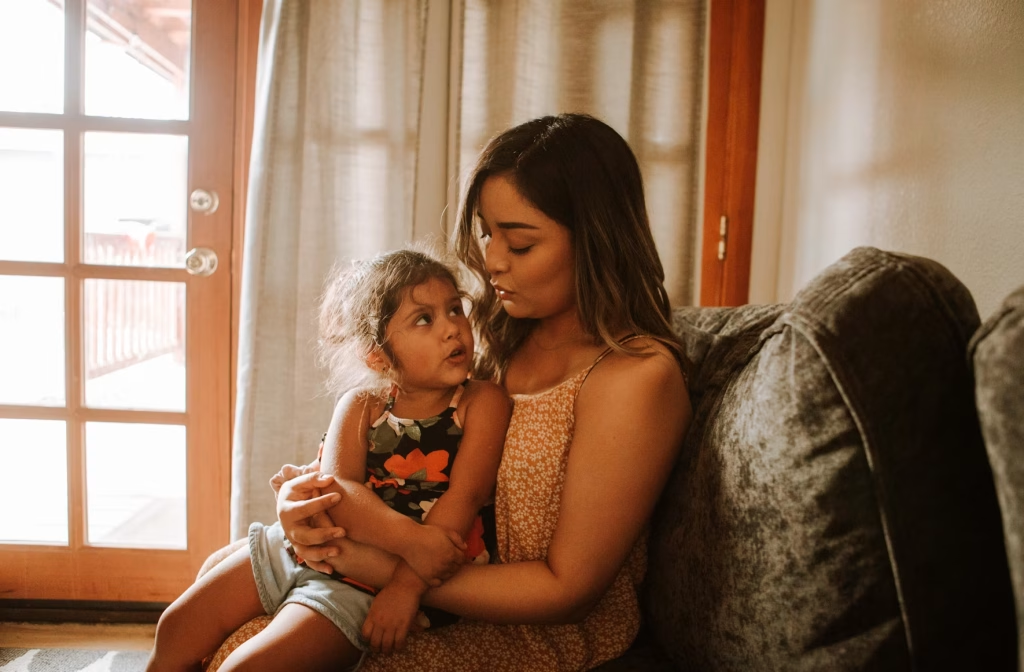
We’ve all been there. The day drags on, the dishes are piled high, your child isn’t listening—again—and before you know it, the words come flying out. Maybe you yelled. Maybe you slammed a door. Maybe your own voice even surprised you. But what happens next is often far quieter: regret, guilt, and the sinking feeling that you’ve just done some damage you never intended.
When you regret yelling at your kids, it can feel like you’ve failed in that moment. Yet here’s what no one talks about—you’re not alone, and it’s far from the end of the story. In fact, recognizing your regret is the first step toward something deeply impactful: repair.
Why We Yell: It’s Not About Discipline
Yelling often occurs not because we genuinely think it’ll help, but because our own emotions boil over. According to parenting psychologist Emily Edlynn, Ph.D., raising your voice typically stems from being overwhelmed, stressed, or feeling out of control—rather than from any deliberate strategy. Research from Zero to Three further emphasizes that staying calm, when possible, is essential for helping children learn self-regulation. Recognizing that yelling usually reflects our own overload can help us be kinder to ourselves and more intentional about our responses. Parenting is high-pressure, and sometimes our own systems need a quick “reset.”
How Yelling Really Affects Kids
While everyone loses their cool on occasion, frequent yelling can affect children more than we might realize.
Research shows that consistent raised voices can increase anxiety, aggression, or even lead to depressive feelings over time. Plus, it can impact how kids interpret tone and language as their brains develop. Frequent shouting not only stresses children emotionally but can also erode trust if left unchecked.
The key takeaway? This isn’t about being perfect; it’s about recognizing that yelling can carry unintended emotional baggage for your child—and deciding to address it when it happens.
What Yelling Teaches—Whether You Mean It or Not
Kids don’t just hear yelling; they absorb the lesson that this is how conflict is handled or how strong feelings should be expressed. In fact, children might respond by becoming more reactive themselves or by tuning you out. That’s why, even if you slip up, talking it through and reconnecting with your child afterward is crucial. They can learn that while mistakes happen, healthy reconciliation and emotional honesty can repair the bond.
You Can Let Go of the Guilt—Here’s How
Feeling guilty after yelling means you care deeply about your child’s emotional well-being. But that guilt shouldn’t snowball into shame, which can block productive growth.
Instead, acknowledge what happened, apologize sincerely, and then work on restoring the relationship. This not only heals the parent-child bond but also shows kids it’s okay to own mistakes—an invaluable life lesson.

Steps Toward Healing the Moment
When you realize you yelled and it didn’t help, you’ve already taken the biggest step—awareness. From there:
- Regulate Yourself First: Take a breather, step away if needed, then come back calm.
- Apologize Sincerely: Use simple, age-appropriate language—“I’m sorry I yelled. I was upset, but you didn’t deserve that.”
- Listen to Their Feelings: Ask how they felt in that moment and validate those emotions.
- Find a Strategy: Together, brainstorm ways to handle stress differently next time—like a code word or a quick “cool-down” ritual.
This approach not only repairs damage but strengthens your child’s understanding of healthy communication.
Growing Together, One Moment at a Time
No one said parenting had to be flawless—it’s meant to be real, adaptive, and full of chances to learn. When you regret yelling at your kids, don’t let that guilt dominate. Instead, let it prompt reflection, repair, and reconnection.
Accepting your mistakes and modeling how to move forward teaches your kids empathy, emotional regulation, and resilience. These tough moments can spark conversations and deepen trust, ultimately leading to a healthier parent-child dynamic.
Let’s Keep the Conversation Going
Plenty of advice tells us what to do when parenting goes right. But what about when you wish you’d done differently? Acknowledging regret after yelling isn’t a parenting fail; it’s a chance to grow. So here’s your reminder: your parenting isn’t defined by slip-ups but by the empathy and effort you bring afterward.
Has there been a time when you wished you’d reacted differently? Share in the comments. You never know who might be helped by your story.
Read More
- How to Handle Your Child’s Big Emotions Without Yelling
- 6 Signs Your Child Is Struggling with Social Anxiety

Samantha Warren is a holistic marketing strategist with 8+ years of experience partnering with startups, Fortune 500 companies, and everything in between. With an entrepreneurial mindset, she excels at shaping brand narratives through data-driven, creative content. When she’s not working, Samantha loves to travel and draws inspiration from her trips to Thailand, Spain, Costa Rica, and beyond.